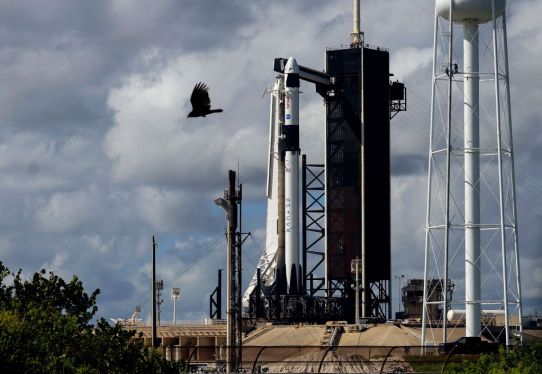Russia Considers Continuing Participation in International Space Station Despite Ongoing Tensions
Russia’s Internal Discussions on ISS Continuation
In a surprising turn of events, Russia is having internal discussions about continuing its participation in the International Space Station (ISS) program beyond 2024. This development comes despite earlier statements made by Roscosmos head Yuri Borisov that Russia would be withdrawing from the station program by the middle of the decade.
Sergei Krikalev’s Comments on ISS Extension
On Monday, Sergei Krikalev, the head of human space programs at Roscosmos, announced that the Russian space agency is engaged in discussions with their government to extend its participation in the ISS program. According to Krikalev, they are hoping to receive permission to continue participating next year.
"We know that it’s not going to happen very quickly, so probably we will keep flying [on the ISS] until we have any new infrastructure that will allow us to do continuous human presence on low Earth orbit," said Krikalev during a NASA media briefing on the upcoming Crew-5 mission.
Background on Russia’s Plans for Its Own Orbiting Station
The ISS is operated in partnership between the space agencies of the U.S., Russia, Canada, Japan, and Europe. The American commitment to operate the station extends through 2030. However, it was announced earlier this summer that Russia would be leaving the ISS program after 2024 to construct its own orbiting station.
Challenges with Developing a New Russian Station
Krikalev admitted during the media briefing that developing a new Russian station may not be feasible by 2025. He emphasized the importance of maintaining human presence in low Earth orbit and acknowledged that Russia will likely continue to participate in the ISS program until its own infrastructure is ready.
Recent Astronaut Transportation Exchange Deal between U.S. and Russia
The recent astronaut transportation exchange deal between the U.S. and Russia has seen cosmonaut Anna Kikina launch to the ISS aboard a SpaceX Crew Dragon spacecraft, marking the first time a Russian astronaut flew on this type of vehicle. As part of this agreement, American astronaut Francisco Rubio launched to the ISS aboard a Russian Soyuz spacecraft last month.
"This type of exchange will increase [the] robustness of our program and we will continue this practice to make our program more reliable," said Krikalev during the media briefing.
Continued Collaboration between Russia and U.S. on ISS
Despite tensions between Russia and the U.S., NASA’s manager of the ISS program, Joel Montalbano, emphasized that American staff are still working with Roscosmos at Mission Control Center Moscow and other locations. He also stated that NASA is in frequent contact with the American Embassy in Moscow and anticipates no impact to the next Soyuz launch carrying an American astronaut.
Implications of Russia’s Potential Continued Participation in ISS
The news of Russia reconsidering its participation in the ISS program beyond 2024 raises several questions about the future of space cooperation between Russia and other countries involved in the ISS partnership. If Russia does choose to continue participating, it could potentially lead to increased collaboration on the development of a new Russian orbiting station.
However, if Russia decides to withdraw from the ISS program after all, it may have significant implications for the global space community, particularly with regards to maintaining continuous human presence in low Earth orbit.
Timeline and Next Steps
The next Soyuz launch carrying an American astronaut is scheduled to take place soon. NASA’s Joel Montalbano expressed confidence that there would be no impact on this mission due to ongoing tensions between Russia and the U.S.
In conclusion, while Russia has announced its intention to leave the ISS program after 2024, it appears that they are reconsidering their participation. The implications of this development will depend on the outcome of internal discussions within Russia’s government.
Related Articles
- SpaceX Catches Starship Booster a Second Time, Loses Ship to an ‘Anomaly’ in Space
- A recent SpaceX mission saw the company catch its Starship booster for the second time. However, the spacecraft itself was lost due to an "anomaly" in space.
- Blue Origin Successfully Launches New Glenn Rocket into Space
- Blue Origin has successfully launched its New Glenn rocket into space. This achievement marks a significant milestone for the company’s reusable rocket program.
About the Author
Astronaut enthusiast, writing about space and technology for a general audience.



